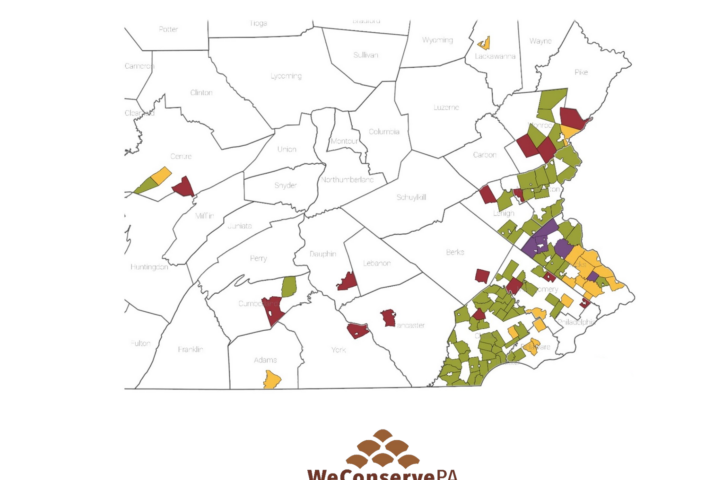WeConservePA has updated additional guides in its Library: Property Tax Exemption for Preserves, Parks, Trails, and Other Conserved Lands; Restricted Gifts: Issues to Consider Before Making or Taking a Gift for a Specific Purpose; and Permits for Events, Hunting, Camping, and Other Uses of Conserved Land; Optimizing Direct Mail Fundraising Appeals; and, Installment Agreement.
- Property Tax Exemption for Preserves, Parks, Trails, and Other Conserved Lands: Preserves, parks, trails, and other conserved lands in Pennsylvania are not automatically exempted from real estate taxes. If tax exemption is desired for a parcel, the charitable organization or local government must apply for exemption for that specific parcel. Exemption for one parcel does not guarantee exemption for others owned by the same entity. This guide explores the complexities of the tax exemption process as it relates to conserved properties in Pennsylvania.
- Restricted Gifts: Issues to Consider Before Making or Taking a Gift for a Specific Purpose: As a general rule, gifts of cash, land, easements, or other assets to a charity may be used, at the discretion of the charity, for any of its charitable purposes. A conservation organization soliciting a gift for a specific purpose, or a donor willing to give only for a specific purpose, may be creating a restricted gift, a gift which limits—sometimes sharply—the organization’s discretion in managing the gift. A specific purpose may be defined narrowly or broadly. The narrower the purpose (in other words, the more restrictive the gift), the greater the likelihood that it will present management challenges to the organization. This guide ultimately encourages organizations to strive to limit restricted gifts in whatever way they can, and details numerous reasons why with relevant examples.
- Permits for Events, Hunting, Camping, and Other Uses of Conserved Land: Managers of parks, nature preserves, and other lands available for public use often require users to obtain permits to use the land for certain activities. Requiring permits for certain activities on conservation lands (such as events, hunting, and camping) helps land managers ensure that the activities do not negatively impact the land or others’ enjoyment of it. The permit-application process can also serve to inform users of the rules for using the land. This guide explores the basics of permits and permit applications for events, camping, and hunting, and includes examples for each.
- Optimizing Direct Mail Fundraising Appeals: Statistics and research support the idea that appeal letters sent via the postal service can still be an effective fundraising tool for nonprofits, even in this age of the internet. The links included in this guide, sorted by category, can help organizations raise more money through the mail. This collection of resources represents a wide range of best practices collected from professional experiences working in development and fundraising for the nonprofit sector and conservation community. Many of the tips are also rooted in research-based or data-based practices. Some of the advice may even contradict from resource to resource a bit—these resources reflect a wide range of thinking on how to approach this work. Some of the tips and advice included here will be included across many of these resources. Reading a wide range of perspectives from a variety of experts should help an organization decide on which approach may work best for them.
- Installment Agreement: The seller of real estate may finance the buyer’s purchase of a property. An installment agreement requires the buyer to pay the seller the purchase price in installments over time. The buyer takes immediate possession of the property, but the seller retains legal title as security until the buyer pays in full. An installment agreement can be a low-cost, flexible alternative to a traditional mortgage or other loans. Both the buyer and the seller may benefit from such an agreement. Payment amounts and timing can be structured in an infinite variety of ways and tailored to best meet the needs of both parties.


